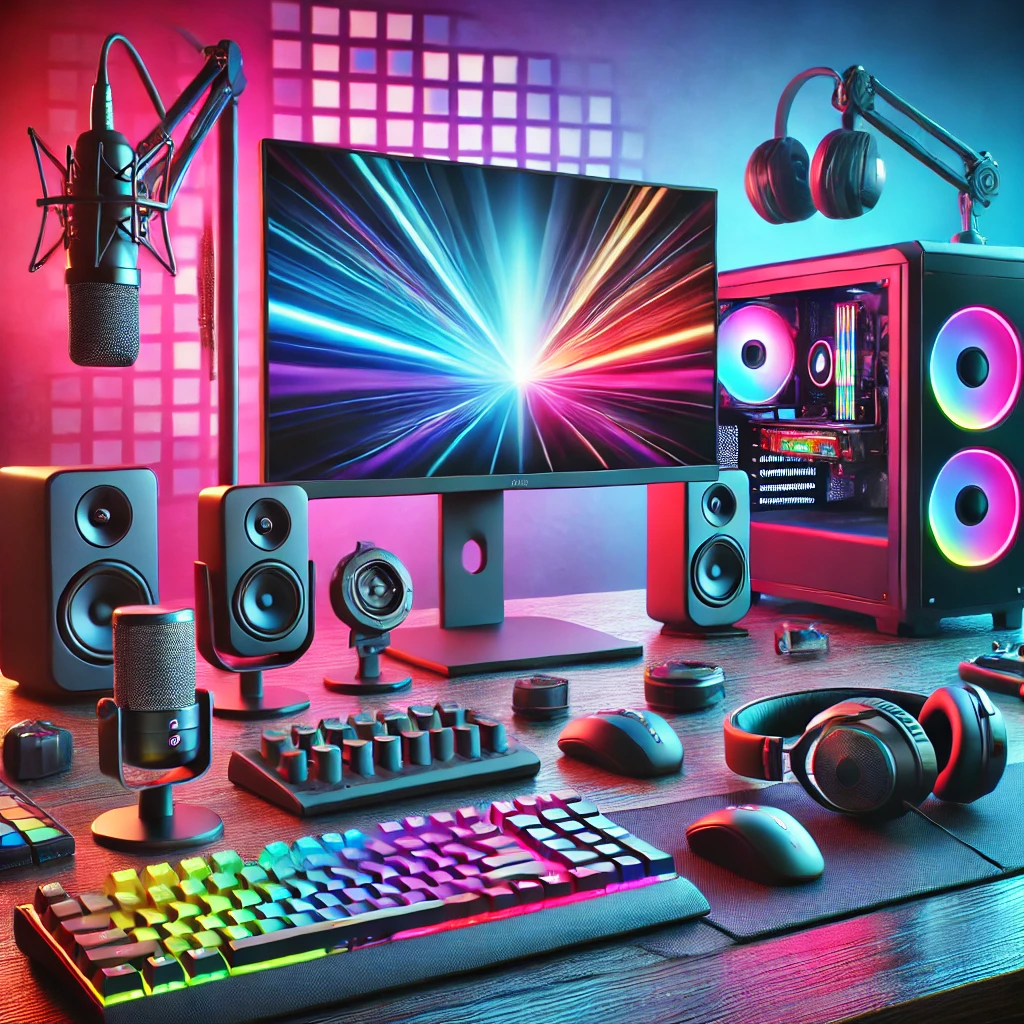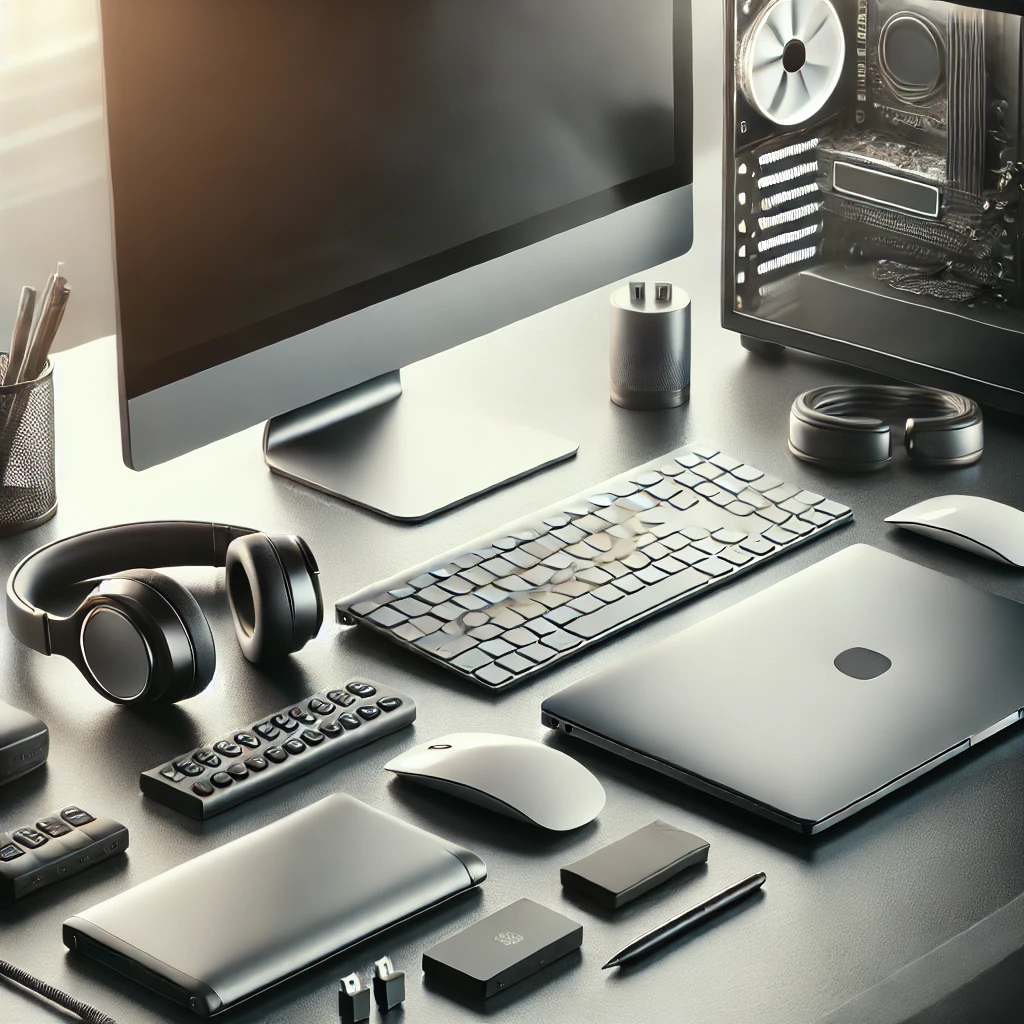The Ultimate Computer and Accessories Buying Guide: How to Choose the Right Gear
Whether you’re a professional, gamer, or casual user, choosing the right computer and accessories is essential for optimal performance and comfort. With so many options available, it can be overwhelming to navigate through the vast array of choices. In this buying guide, we’ll walk you through the key factors to consider when selecting computers and their essential accessories. We will also offer recommendations to ensure that you find the best match for your needs.
Table of Contents:
- Choosing the Right Computer: Laptop vs. Desktop
- Understanding Key Specifications
- Best Laptops for Various Needs
- Best Desktops for Various Needs
- Essential Computer Accessories: Keyboards, Mice, Monitors, and More
- How to Choose the Right Monitor
- Selecting the Perfect Keyboard and Mouse
- Other Essential Accessories: Webcams, Speakers, and Headsets
- Tips for Maintaining Your Computer and Accessories
- Conclusion: Making the Right Choice

Choosing the Right Computer: Laptop vs. Desktop
Laptop vs. Desktop: What’s the Difference?
The first major decision you’ll face is whether to buy a laptop or a desktop. Laptops are portable and versatile, making them ideal for those who need to work on-the-go. They are compact, often come with integrated screens, and include batteries for portability. However, they tend to be more expensive for the same performance levels as desktops.
Desktops are powerful, customizable, and typically offer better performance for the price. They’re ideal for home offices or gaming setups, where portability isn’t necessary.
Key Decision Factors:
Portability:
Choose a laptop if you need something lightweight and portable.
Performance:
Desktops generally provide better performance per dollar spent.
Upgradeability:
Desktops allow for easier upgrades to components such as RAM, CPU, and storage.
Understanding Key Specifications
Before making your purchase, it’s important to understand what specifications to look for in a computer. Here are the critical components:
Processor (CPU):
The brain of your computer. The most common processors are Intel Core i3, i5, i7, and i9, and AMD Ryzen. Choose a higher-end processor if you plan to perform resource-heavy tasks like gaming or video editing.
RAM:
The more RAM, the better the multitasking performance. For general use, 8GB is sufficient. For gaming, video editing, or software development, 16GB or more is recommended.
Storage:
SSDs (Solid State Drives) are faster than traditional HDDs and are highly recommended for better performance. A 512GB SSD is ideal for most users.
Graphics Card (GPU):
For gaming, 3D modeling, and video editing, a dedicated GPU like NVIDIA GeForce or AMD Radeon is essential. If you only need basic computing, integrated graphics will suffice.
Battery Life (for laptops):
Look for a battery that lasts at least 8 hours for all-day productivity.

Best Laptops for Various Needs
Best for Professionals:
MacBook Pro 16-inch or Dell XPS 13 for excellent performance, build quality, and display.
Best for Students:
Lenovo IdeaPad 3 or HP Pavilion 15 for a budget-friendly option with sufficient power for school work.
Best for Gamers:
ASUS ROG Strix G15 or Alienware M15 for high-performance gaming laptops.
Best for Budget-Friendly Laptops:
Acer Aspire 5 or HP Chromebook for those who need a laptop without breaking the bank.
Best Desktops for Various Needs
Best for Productivity: Apple iMac 24-inch or Microsoft Surface Studio 2 for sleek all-in-one designs and powerful specs for productivity tasks.
Best for Gaming: Alienware Aurora R12 or HP Omen 30L, both offering top-tier GPU options and cutting-edge performance.
Essential Computer Accessories: Keyboards, Mice, Monitors, and More
Once you’ve picked your computer, don’t forget about the essential accessories that can make your work or gaming experience much better:
Keyboards: Mechanical keyboards are known for their durability and tactile feedback. Popular models include the Logitech G Pro X and Corsair K95 RGB Platinum. For quiet typing, consider membrane keyboards like the Logitech K840.
Mice: Ergonomic mice like the Logitech MX Master 3 or Razer DeathAdder are designed for comfort and precision. Gamers should opt for a mouse with a high DPI sensor, while office users may prefer wireless mice for convenience.
Monitors: A good monitor improves productivity and comfort. Look for one with an IPS panel for better color accuracy and wide viewing angles. A 24- to 27-inch screen with a 1080p or 1440p resolution is ideal for most users. For gaming, a 144Hz refresh rate or higher is important.
How to Choose the Right Monitor
Choosing the right monitor can significantly enhance your computing experience. Consider the following factors:
Size: Larger monitors (27-inch or higher) are better for multitasking and immersive gaming experiences.
Resolution: 1080p (Full HD) is sufficient for most tasks. For sharper images and more detail, opt for 1440p or 4K resolution.
Refresh Rate: A higher refresh rate (120Hz, 144Hz, or 240Hz) ensures smoother visuals, particularly for gaming.
Panel Type: IPS panels offer better color accuracy, while TN panels are faster for gaming but sacrifice color reproduction.
Selecting the Perfect Keyboard and Mouse
Ergonomics: Choose an ergonomic keyboard and mouse if you work long hours to reduce strain on your hands and wrists. Look for split designs and adjustable heights.
Gaming: Gaming keyboards often feature mechanical switches for faster key presses, customizable RGB lighting, and additional macro keys. Gaming mice come with high DPI sensors for precise movements and programmable buttons.
Other Essential Accessories: Webcams, Speakers, and Headsets
Webcams: A high-definition webcam, such as the Logitech C920, is a must for video conferencing or streaming.
Speakers: For clear audio, consider speakers from Bose, Logitech, or Creative Labs.
Headsets: A noise-canceling headset, like the SteelSeries Arctis 7 or Sony WH-1000XM4, provides clear audio and a better gaming or conference call experience.
Tips for Maintaining Your Computer and Accessories
To extend the lifespan of your computer and accessories:
Regularly clean your keyboard, mouse, and monitor to remove dust and debris.
Use surge protectors to prevent damage from power surges.
Perform system updates and keep your software up-to-date for better performance and security.
Backup your files regularly to avoid data loss.
Conclusion
Making the Right Choice
Selecting the right computer and accessories comes down to understanding your specific needs. Whether you’re working from home, gaming, or simply browsing the web, this guide has provided all the essential details to make an informed choice. Consider your budget, specifications, and the accessories that will enhance your experience, and you’re sure to find the perfect setup.
Disclaimer
Our buying guides are designed to help you make informed decisions by providing well-researched insights, product details, and expert recommendations. However, features, prices, and availability may change over time. We encourage you to verify information directly with manufacturers or sellers before purchasing. Your final choice should be based on personal research and preferences, and we are not responsible for any decisions made based on this guide.